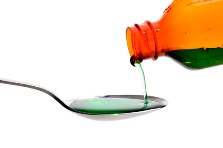 Coughs are nagging, often brutal, robbers of sleep, pain-inflictors, and head-rattlers. Many people reach for cough drugs or syrup to provide relief. There is wide speculation as to whether they in fact do anything at all. A new health breakthrough at least provides something to consider: menthol and sucrose, common ingredients, both on their own could reduce coughing.
Coughs are nagging, often brutal, robbers of sleep, pain-inflictors, and head-rattlers. Many people reach for cough drugs or syrup to provide relief. There is wide speculation as to whether they in fact do anything at all. A new health breakthrough at least provides something to consider: menthol and sucrose, common ingredients, both on their own could reduce coughing.
Coughing is a vital protective reflex that clears the respiratory tract of threats from mechanical stimuli like food and chemical stimuli such as airborne toxins and pollutants. As such, coughing is necessary to protect the lungs, keep airways clear, and preserve life. But much about coughing remains poorly understood, including how chemicals act to trigger and modulate cough.
The new study, a small one published in “Pulmonary Pharmacology and Therapeutics,” set up 12 healthy adults to catch a cough after inhaling wafts of chili pepper (capsaicin). After each inhalation, the amount of capsaicin was doubled. This procedure continued until the subject coughed three times within 10 seconds. The capsaicin concentration that induced the three coughs was labeled as the individual’s cough threshold.
Now for the herbal treatment. In some sessions, the subjects held either a very sweet sucrose solution or plain water in their mouths for three seconds, spat the liquid into a sink, and then inhaled. In other sessions, subjects inhaled three breaths of either menthol-saturated air or clean air before each capsaicin inhalation. The menthol concentration was selected to approximate the cooling intensity of a menthol cigarette.
Both sucrose and menthol increased the amount of capsaicin needed to elicit a cough relative to plain water or clean air, respectively. Sucrose increased cough threshold by about 45%, while menthol boosted it by approximately 25%.
This may be the first study to illustrate how a sweet taste could reduce cough. This also is the first study to show that menthol alone could reduce coughing in response to a cough-eliciting agent. While this does give some backing to cough syrups, it sheds a very interesting light on menthol cigarettes. And not a good one.
RECOMMENDED: Why It’s Tougher to Quit Menthols
This study supports the theory that adding menthol to cigarettes (colloquially known as “menthols”) may make it easier to begin smoking by suppressing the cough reflex. This makes the first cigarettes less distressing. What’s more is that menthol may dull the sensitivity of nerves in the airways and thereby actually disable the cough reflex. This takes away a mechanism that would otherwise protect smokers from the chemical and particulate irritants present in cigarette smoke. In other words, it makes menthol cigarettes more dangerous to your lungs.
